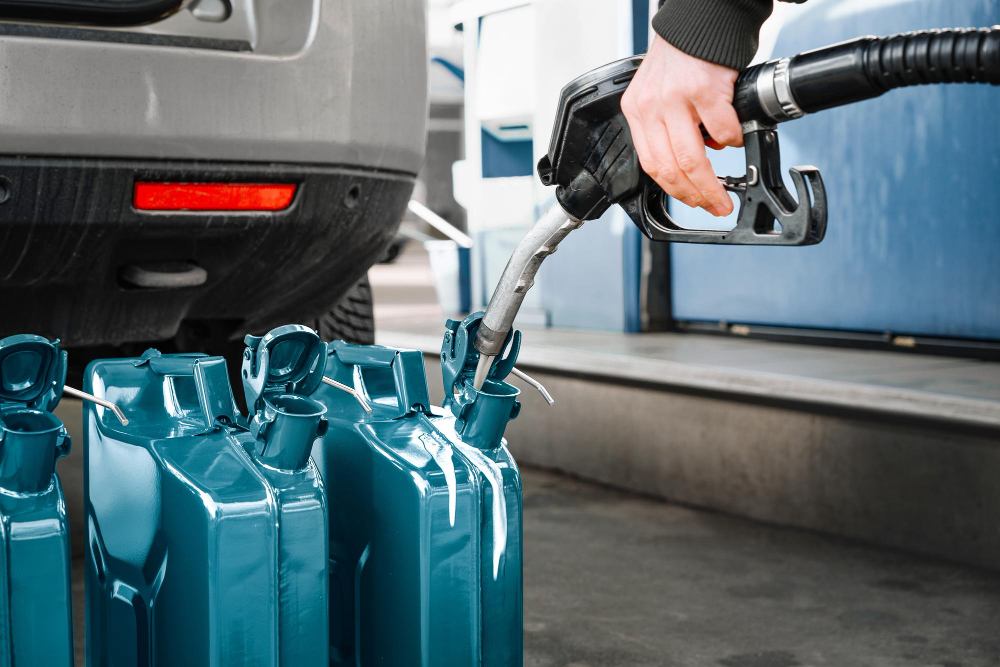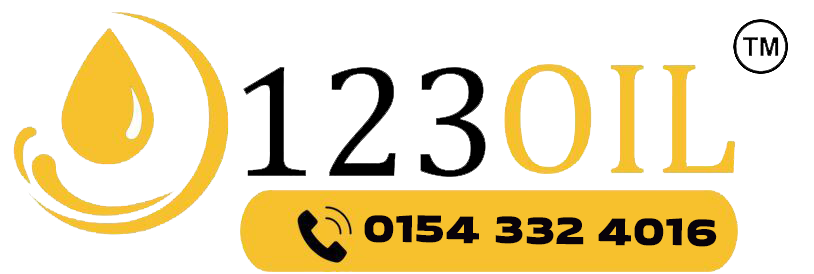To find out how much heating oil you’re using, check your tank level regularly or use a Heating Oil Usage Calculator. Record the oil level, wait a set period (like a week or a month), then subtract the new reading from the previous one to see how much oil was consumed. Multiply this by the number of weeks or months in a year for an annual estimate. On average, UK homes use between 2,000 and 3,000 litres of heating oil per year, depending on boiler efficiency, Insulation, thermostat settings, and home size.
When winter sets in across the UK, keeping your home warm and comfortable becomes a top priority. For households using oil-fired central heating systems, one of the most common questions that arises is, “How much heating oil am I using?” Understanding your heating oil consumption isn’t just about staying warm, it’s about budgeting efficiently, conserving energy, and ensuring you never run out of fuel unexpectedly.
In this comprehensive guide, we’ll explain how to calculate your heating oil usage, the factors that influence it, and practical tips to reduce consumption without compromising comfort. Whether you’re new to oil heating or want to understand your household’s energy habits better, this article will walk you through everything you need to know.
What Is Heating Oil and How Is It Used?
Heating oil is a refined petroleum product used in oil-fired boilers or furnaces to provide heat and hot water for homes. It’s stored in an external tank, usually located in the garden or beside the property, and pumped into your heating system when required.
Unlike gas, heating oil isn’t supplied through the mains network, so you must order and store it yourself. This gives you greater control over your usage and supplier choice, but it also means you’re responsible for monitoring your consumption and ensuring the tank doesn’t run dry.
Why Knowing Your Heating Oil Usage Matters
Tracking how much heating oil you use can help you in several ways:
- Avoid running out of oil: Monitoring your tank ensures you order a refill before it’s too late.
- Budget planning: Understanding your usage helps forecast costs more accurately throughout the year.
- Energy efficiency: Identifying high usage patterns can help detect inefficiencies or heating problems.
- Environmental awareness: Using less oil reduces your carbon footprint.
For many homeowners, the real challenge lies in estimating how much oil they’re using and what factors affect it.
How to Calculate Your Heating Oil Usage
To estimate how much heating oil your home consumes, you can use a Heating Oil Usage Calculator or perform a simple manual calculation.
Use a Heating Oil Usage Calculator
A Heating Oil Usage Calculator is an easy online tool where you input details such as your tank size, the number of occupants, average temperature settings, and the age of your boiler. The calculator will then estimate your monthly or annual oil consumption.
This tool is particularly useful for those new to oil heating or looking to compare seasonal usage trends.
Manual Calculation Method
If you prefer a hands-on approach, follow these steps:
- Step 1: Note your current oil tank level (in litres or percentage).
- Step 2: Record the date.
- Step 3: After a set period (for example, one week or one month), check the level again.
- Step 4: Subtract the new level from the previous one to determine how much oil you’ve used.
- Step 5: Multiply that by the number of weeks or months in the year to estimate annual usage.
Example:
If you use 200 litres in two weeks, you can estimate that your annual usage will be around 5,200 litres (200 ÷ 2 × 52).
Average Heating Oil Usage in UK Homes
On average, a typical three-bedroom UK home using oil-fired central heating consumes between 2,000 and 3,000 litres per year. However, this number can vary widely depending on:
- The size of your home
- The number of people living in it
- The insulation quality
- The efficiency of your boiler
- Outdoor temperatures and regional climate
- Your personal heating habits
For instance, a large, older home with poor Insulation will consume more oil than a smaller, well-insulated one.

Factors That Influence Heating Oil Consumption
Several key factors determine how much heating oil you’re using:
Boiler Efficiency
Older boilers tend to be less efficient, converting less fuel into usable heat. A modern condensing boiler can achieve over 90% efficiency, while older models may only reach 70%. This means upgrading your system can dramatically reduce consumption.
Thermostat Settings
Every Degree you increase your thermostat adds roughly 6% more fuel usage. Keeping your heating at 19–20°C instead of 22°C can make a noticeable difference over the course of the year.
Home Insulation
Good Insulation in your roof, walls, and floors helps retain heat for longer. Double glazing and draught-proofing also help lower oil consumption significantly.
Seasonal Changes
Winter naturally brings higher oil usage due to colder temperatures, but prolonged cold spells can cause spikes. Summer, on the other hand, requires minimal heating oil unless it is used solely for hot water.
Occupancy and Lifestyle
More people at home during the day or longer heating hours mean higher consumption. Similarly, working from home full-time can double your usual oil usage compared to when the property was empty during office hours.
How to Measure Heating Oil Levels
To accurately track your heating oil usage, you need to know how much oil remains in your tank. There are several methods to measure this:
- Manual Dipstick: A simple wooden stick or pole is used to dip into the tank and measure the oil depth.
- Tank Gauge: Many modern tanks have built-in gauges (mechanical or digital) that show the oil level as a percentage.
- Smart Monitors: These connect to your smartphone or tablet, allowing you to check levels remotely and even receive alerts when oil is running low.
Smart technology makes it much easier to manage fuel consumption, especially for those with busy schedules.
How to Reduce Heating Oil Consumption
If you’re finding your heating oil bills higher than expected, there are several ways to cut usage without sacrificing comfort:
Schedule Regular Boiler Servicing
An annual boiler service keeps the system running efficiently and prevents costly breakdowns. Clean filters and properly adjusted burners ensure less oil is wasted.
Use a Programmable Thermostat
Set you’re heating to turn off automatically when not needed, such as when you’re asleep or out of the house.
Improve Insulation
Upgrading your Insulation is one of the most effective ways to reduce oil usage. Loft insulation, cavity wall insulation, and proper window sealing can make a big difference.
Lower Your Thermostat by One Degree
This small adjustment can save around 10% on heating costs annually, with barely any noticeable change in comfort.
Zone Your Heating
If your system allows, heat only the rooms you use most often. Unused guest rooms or storage spaces don’t need to be kept warm.
Monitor Your Usage Regularly
Using a Heating Oil Usage Calculator or smart meter helps you track and adjust your consumption habits in real time.
Seasonal Planning: When to Order Heating Oil
Oil prices fluctuate throughout the year, often peaking in winter when demand is highest. To save money, consider ordering your heating oil in the late spring or summer months.
You can also set up automatic delivery or top-up services through trusted suppliers like 123 Oil, ensuring you never run out during the coldest days of the year.
Signs You Might Be Using Too Much Heating Oil
If you’re heating oil seems to run out faster than expected, it could indicate a problem such as:
- A leak in the oil tank or pipework
- Poor boiler performance
- Inaccurate tank gauge readings
- Excessive thermostat use
- Uninsulated pipes are losing heat
Inspect your system and tank regularly, and consult a professional if you notice sudden spikes in usage.
Environmental Considerations
Reducing your heating oil usage isn’t just good for your wallet, it’s good for the planet too. Using less oil means fewer carbon emissions, and upgrading to energy-efficient appliances contributes to a more sustainable home. Some households even blend oil heating with renewable sources like solar water heating to reduce reliance on fossil fuels.
How to Plan Your Annual Heating Oil Budget
To manage your finances effectively, it’s best to estimate your yearly oil usage and costs in advance.
- Step 1: Use your past delivery receipts or monitor your consumption for a few months.
- Step 2: Multiply your average monthly usage by 12.
- Step 3: Check current heating oil prices and calculate the total cost for the year.
Setting aside a small monthly budget can make large refill payments easier to manage.
Common Myths about Heating Oil Usage
- Myth 1: Turning the heating off completely saves more oil.
Fact: It’s actually more efficient to maintain a steady temperature. Constantly reheating a cold house uses more oil.
- Myth 2: All boilers use the same amount of oil.
Fact: Efficiency varies greatly between models and ages of boilers.
- Myth 3: Heating oil is bad for the environment.
Fact: Modern heating oil systems are cleaner and more efficient, and low-sulphur fuels have reduced emissions dramatically.
Final Thoughts
Understanding how much heating oil you’re using is key to maintaining a comfortable, efficient, and cost-effective home. By regularly monitoring your tank, using a Heating Oil Usage Calculator, and applying smart energy-saving habits, you can take full control of your consumption.
Keeping your boiler serviced, upgrading Insulation, and ordering oil strategically will all contribute to lower bills and a smaller environmental footprint. Whether you’re heating a rural cottage or a large family home, awareness is the first step to efficient oil use.
Frequently Asked Questions
Most tanks have a gauge that shows oil levels. If not, you can use a dipstick or install a smart monitor to alert you when it’s time for a refill.
An average UK household may use between 7 and 10 litres of heating oil per day during winter, though this varies based on temperature and house size.
For a medium-sized home, 1,000 litres typically lasts between 2 and 3 months during colder seasons, depending on usage and Insulation.
Yes, frequently turning your heating on and off can waste oil because reheating a cold house consumes more energy. It’s more efficient to maintain a steady temperature.
Absolutely. Improving Insulation, lowering the thermostat slightly, and using a Heating Oil Usage Calculator to monitor consumption can all help reduce usage significantly.










